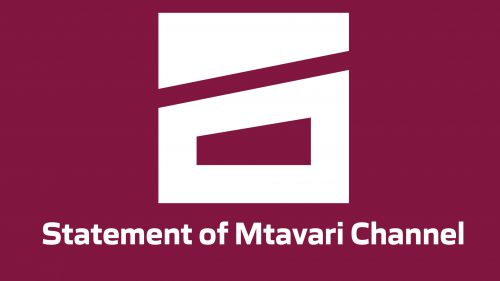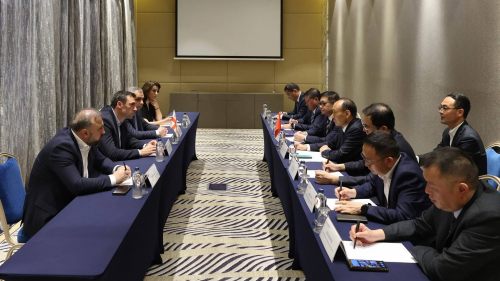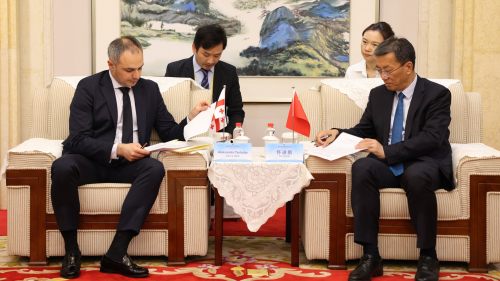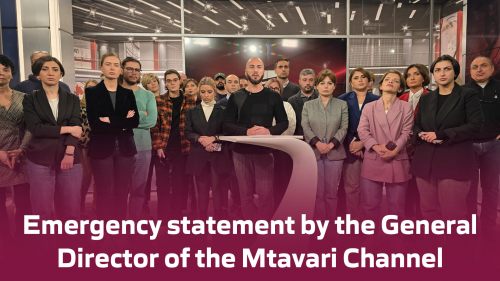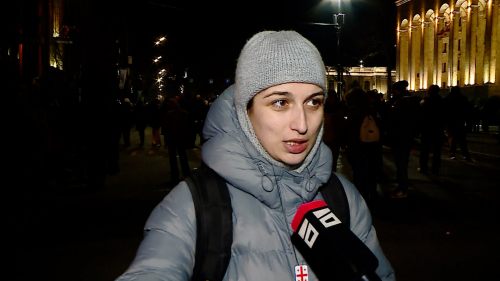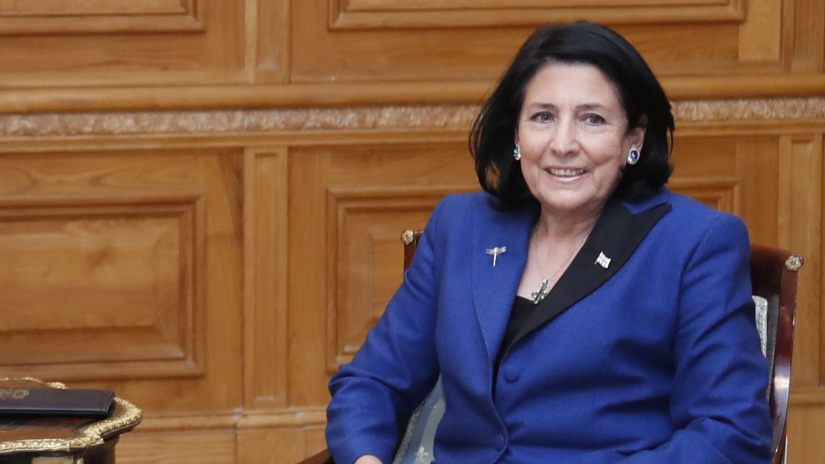
Respecting and acting in accordance with the constitution is the primary responsibility of all constitutional bodies. This is especially true for the President of Georgia, who is obligated to protect the Constitution in its direct text, says the statement of the Georgian Dream political council distributed by the party.
We offer the statement unchanged:
"Unfortunately, there is a clear negative trend in this regard, and we must respond to this trend from the very beginning so that it does not create undue hardship for the functioning of the constitutional order.
Before we speak about details, first of all we want to call on the President of Georgia to familiarize herself with the Constitution of Georgia and in particular the constitutional powers of the three main constitutional bodies - the Parliament, Government and the President.
In her speech yesterday, the President of Georgia proposed some new rules of the game regarding the functioning of the government system. Obviously, she wants to act outside the constitution. But we want to remind the President that it is the Constitution, not the President, that defines the rules of the game in the state system and no one can allow the President to change the Constitution.
As you know, the current Georgian constitution gives an exclusive power to the Georgian government to conduct foreign policy. According to the principles of parliamentary republic the President of Georgia may deal with the implementation of foreign policy only in exceptional cases with the exclusive consent of the Government of Georgia. It must additionally be noted that no state body is subordinated to the President of Georgia regarding the implementation of foreign policy, which makes it impossible for him/her to effectively participate in the implementation of this authority. As already mentioned, these peculiarities stem from the principles of a parliamentary republic.
The appointment of ambassadors and other diplomatic representatives is one of the most important instruments for the implementation of foreign policy. The act in question is issued with the joint signature of the President and the Prime Minister, and according to the Constitution the political responsibility for such an act lies solely with the government. This means that the substantive power to appoint an ambassador belongs to the government under the constitution, while the president has only legal and ceremonial powers in this area. However, even if no reservation is made, the power to appoint ambassadors in all parliamentary republics is defined in this way - formally the president appoints ambassadors, but the government is politically and practically responsible for their selection.
Over the last year there have been a number of cases where the president has refused to appoint an ambassador or diplomatic representative nominated by the government, in gross violation of the Georgian constitution. Over the past months a number of meetings were held between government officials and the President, where the content of the Constitution of Georgia was repeatedly explained to the President, but unfortunately, to no avail. Under these circumstances the Government of Georgia is forced to appeal to the Constitutional Court in the nearest future as part of the dispute over the Court's jurisdiction and demand confirmation of the violation of the Constitution by the President of Georgia.
In accordance with the Georgian Government's exclusive authority in the field of foreign policy, the Constitution of Georgia gives priority to the Government in conducting international negotiations and exercising representative powers. According to the Constitution of Georgia, the President of Georgia may conduct international negotiations and exercise representation powers only with the consent of the Government. As she admitted during yesterday's meeting, the President of Georgia made several visits to different countries without the consent of the Government. It should also be noted that these visits were planned by the President without any prior consultations with the government and the government was informed about it only afterwards, confirming that the President intentionally violated the constitution. We have taken care of the institution of the President and have not made this fact public, but now that the President herself has made it public, we feel it is necessary to give a political response to it.
Interestingly, in her speech yesterday, the president did not say a word about her visits to Europe, when she justified the convening of the extraordinary session on 5 March by the need to submit an urgent report on the visit. This fact also shows that the President returned from Europe without any tangible result.
The President's statements yesterday about the State Security Council are completely incomprehensible. The Security Council is a consultative governmental body of the Prime Minister, established by the Government of Georgia to effectively implement the State Security Policy. The inclusion of non-state entities, representatives of the President and the opposition in this state body directly contradicts the logic of the system and the essence of the body. Even in this case it is obvious that the President of Georgia either has not read the Constitution of Georgia and has not yet understood its essence, or in this case she is also trying to rewrite the Constitution. The reference to the Commander-in-Chief status, even when it is a ceremonial status in a Parliamentary Republic, is an indication that the President does not know how to read the Constitution, or is reading it incorrectly. It should be noted that the main body responsible for implementing security policy in the Parliamentary Republic of Georgia is the Government of Georgia. Apart from government meetings, regular meetings are held with the Prime Minister to discuss security issues. It was at one of these meetings that a representative of the Presidential Administration was invited, who was given explanations about the impracticality of the President's visit, which the President did not take into account.
There have been two gross precedents of violations of the Constitution and legislation by the President in relation to Parliament recently. In particular, the President initially announced the date of her visit to the parliament without parliamentary approval, and later, without parliamentary approval, she introduced the Acting Ambassador of Ukraine into the main session space, which, according to the Constitution and parliament, is the right of the Speaker. It appears that the President was well aware of the discomfort associated with such an action in the context of the withdrawal of the Ambassador by the Ukrainian authorities, and concealed her intention from the Speaker of Parliament for this reason. Out of respect and solidarity with the Ukrainian people we have done our best to alleviate the inconvenience created by the President for the Acting Ambassador and to give him the due respect and support in the parliament.
Yesterday we also heard some incomprehensible statements by the President of Georgia regarding the ongoing processes. One of the "distinguished" among them was the following phrase - "The government sins when it does not dare to express what our history and dignity dictate". However, apart from such an insulting phrase, she did not specify what she meant by an impertinent and undignified government action.
Let us recall that our government has expressed a clear position in all international forums, in all political decisions related to supporting the sovereignty and territorial integrity of Ukraine and responding to Russian aggression - be it suspending Russia's membership in the Council of Europe, co-sponsoring a UN resolution, The Hague resolution or another. If the President means for Georgia to join the sanctions and to go to war, she should have courage and say so openly. We hope she will not repeat the tactics of the radical opposition, which cannot talk openly about sanctions and war, but with all the provocations it is trying to push the government in that direction.
Equally incomprehensible was the president's statement about appointing a representative of the opposition party as the Minister of European Integration. Firstly, the president should understand that as soon as an opposition politician becomes a minister, according to the elementary laws of politics he ceases to be an opposition politician and becomes a representative of the ruling coalition. We will no longer focus public attention on what kind of opposition the president is talking about. It is unclear how the president justifies the expediency of appointing an opposition member to the post of the Minister of European Integration, when yesterday she herself mentioned the long-known fact that the opposition "walks and (undermines) the state". The public can assess for itself the merits of appointing a subversive minister as European integration minister. Moreover, the president's statement has clearly served to raise public expectations about the pace of European integration. The words of European politicians - Borrell, Macron, Scholz and others - demonstrate that Georgia, as well as Ukraine and Moldova, unfortunately, are not too close to EU membership. A series of reforms are needed, which will take many years. Therefore the government has spared no effort so far and will not reduce its efforts in the future. Under these circumstances, it is unclear what it will take to crack the door, which is a well-known calling card of the radical opposition. As we found out, the appointment of an opposition minister for European integration was the main message of the President's speech yesterday, which in itself speaks volumes.
The Georgian President's actions against the Constitution and baseless statements are particularly dangerous at a time when the world and Georgia are facing particular security challenges in the context of the Russian-Ukrainian war.
In conclusion, we once again call on the President of Georgia to study the constitution of Georgia thoroughly and to understand the essence of the parliamentary republic, in the creation of which she is directly involved as a member of the Parliament of Georgia. In this case she will still be secured from making mistakes and transgressions in the future and her future actions and statements will not leave so many questions. The President of Georgia must first and foremost respect the Georgian Constitution and the constitutional duties and responsibilities of the President," the Georgian Dream statement reads.
Yesterday's speech by Salome Zurabishvili irritated Georgian Dream. The president denounced the government's blocking of international visits from the parliamentary podium.



